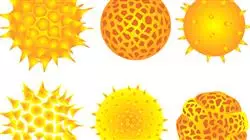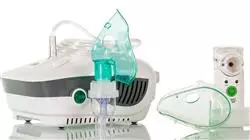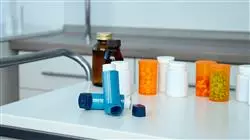University certificate
The world's largest faculty of medicine”
Why study at TECH?
Include in your medical practice the lastest diagnostic techniques in allergology and become one of the most in-demand professionals of today”

Allergology has seen how, in recent years, the number of people affected by the different forms of manifestation of the disease has increased notably. In the last two decades, this increasing trend has been particularly noticeable among children. And yet, very few countries have specialized services in this medical field.
This prevalence has led to allergy being considered a major health problem: according to the WHO, hundreds of millions of people suffer from rhinitis, one of the most common allergy conditions, and at least 300 million suffer from asthma. In addition to these figures, there is an enormous variety of other common and new allergies that have become commonplace in the specialist's office.
This training program has been created with the aim of providing professionals with specific training in the field of allergology to equip them with the most up-to-date knowledge in diagnosis and intervention.
In this sense, the professional must be able to offer their patients a study of their disease in which the recognition of allergens is a priority in order to work towards a lifestyle that aims to avoid symptoms and, with them, the progression of the disease.
During this training, you will learn about new lines of research and practice in allergic disease with a special interest in areas such as asthma and diagnosis by inflammatory genotypes or measurements: induced sputum, flow cytometry, measurement of cytokines and interleukins.
A comprehensive refresher program that will also allow you to incorporate Big Data and telemedicine skills. Work routines that will provide you with a new spectrum of performance and permanent growth.
Get up-to-date in one of the most in-demand specialties, with 30-40% of the world's population affected by allergies"
This Postgraduate certificate in Diagnostic Techniques in Allergic Diseases offers you the characteristics of a high-level scientific, teaching, and technological course. These are some of its most notable features:
- The latest technology in online teaching software
- Highly visual teaching system, supported by graphic and schematic contents that are easy to assimilate and understand
- Practical cases presented by practising experts
State-of-the-art interactive video systems - Teaching supported by telepractice
- Continuous updating and recycling systems
- Autonomous learning: full compatibility with other occupations
- Practical exercises for self-evaluation and learning verification
- Support groups and educational synergies: questions to the expert, debate and knowledge
- Communication with the teacher and individual reflection work
- Content that is accessible from any fixed or portable device with an Internet connection
- Supplementary documentation databases are permanently available, even after the course
A complete review of the latest diagnostic techniques allowing you to apply them to your medical practice almost immediately”
Our teaching staff is composed of medical professionals and practising specialists. In this way, we ensure that we provide you with the training update we are aiming for. A multidisciplinary team of doctors trained and experienced in different environments, who will develop the theoretical knowledge in an efficient way, but, above all, will put at the service of the course the practical knowledge derived from their own experience: one of the differential qualities of this training.
This mastery of the subject is complemented by the effectiveness of the methodological design of this course in Diagnostic Techniques in Allergic Diseases. Developed by a multidisciplinary team of e-learning experts, it integrates the latest advances in educational technology. This way, you will be able to study with a range of comfortable and versatile multimedia tools that will give you the operability you need in your training.
The design of this program is based on Problem-Based Learning: an approach that conceives learning as a highly practical process. To achieve this remotely, we will use telepractice: with the help of an innovative interactive video system, and learning from an expert, you will be able to acquire the knowledge as if you were actually dealing with the scenario you are learning about. A concept that will allow you to integrate and fix learning in a more realistic and permanent way.
We offer you the latest developments in advanced allergology, helping you acquire knowledge of new ways of working and approaching patients"

Our innovative telepractice concept will give you the opportunity to learn through an immersive experience, which will provide you with a faster integration and a much more realistic view of the contents: “learning from an expert”
Syllabus
The contents of this course have been developed by the different experts on this course, with a clear purpose: to ensure that our students acquire each and every one of the necessary skills to become true experts in this field.
A complete and well-structured program that will take you to the highest standards of quality and success. Expert patients participate in the preparation of the program, which adds a very original and close perspective, with real cases and situations that are not only clinical but also social. It has a holistic perspective, not just a medical one, making it of interest to healthcare professionals of any kind.

A comprehensive teaching program, structured in well-developed teaching units, oriented towards learning that is compatible with your personal and professional life"
Module 1. Diagnostic Techniques for Allergic Diseases
1.1. General Aspects of the Diagnosis of Allergic Diseases
1.1.1. Basic Criteria
1.2. In-Vivo Diagnostic Methods of Allergic Diseases: Prick Test. Epicutaneous Tests. Oral Provocation Tests
1.3. In-Vitro Methods of Allergic Diseases. Classification and Description
1.4. Molecular Diagnostics by Components in Pneumoallergen Allergic Respiratory Diseases: Pollens
1.5. Molecular Diagnostics by Components in Pneumoallergen Allergic Respiratory Diseases: Mites and Fungi
1.5.1. Diagnostic Techniques
1.6. Molecular Diagnostics by Components in Pneumoallergen Allergic Respiratory Diseases: Animals.
1.6.1. Diagnostic Techniques
1.7. Molecular and Component-Based Diagnosis in Food Allergy
1.8. Molecular and Component-Based Diagnosis in Vespid Allergy
1.9. Basotest in the Diagnosis of Allergic Diseases
1.10. Induced Sputum in the Diagnosis of Respiratory Allergic Diseases
1.11. Apparatus in the Diagnosis of Allergic Diseases
1.12. Diagnosis of Comorbidities of Allergic Diseases: Obesity, Gastroesophageal Reflux Disease, and Sleep Disorders

Developments in immunology in the field of allergology, in a high intensity educational course in Diagnostic Techniques in Allergic Diseases"
Postgraduate Certificate in Diagnostic Techniques in Allergic Diseases
If you work in the health care field, you are well aware of how crucial accurate diagnosis is for the effective treatment of any disease. In the case of allergic pathologies, a careful evaluation of symptoms is essential to identify the cause of allergic reactions and prevent future exposures. Therefore, if you wish to be updated in the diagnostic techniques of such conditions, do not miss the opportunity to enroll in this Postgraduate Certificate in Diagnostic Techniques in Allergic Diseases.
Time to update you in the diagnostic procedures for allergic pathologies.
This Postgraduate Certificate in Diagnostic Techniques in Allergic Diseases focuses on the most common diagnostic techniques used to evaluate traditional allergic diseases, such as allergic rhinitis, bronchial asthma or atopic dermatitis. Through master classes, case studies or practical situations, you will be immersed in an exciting academic journey condensed into 150 hours in which you will benefit from the experience of experts who have emerged as eminent in this area.







